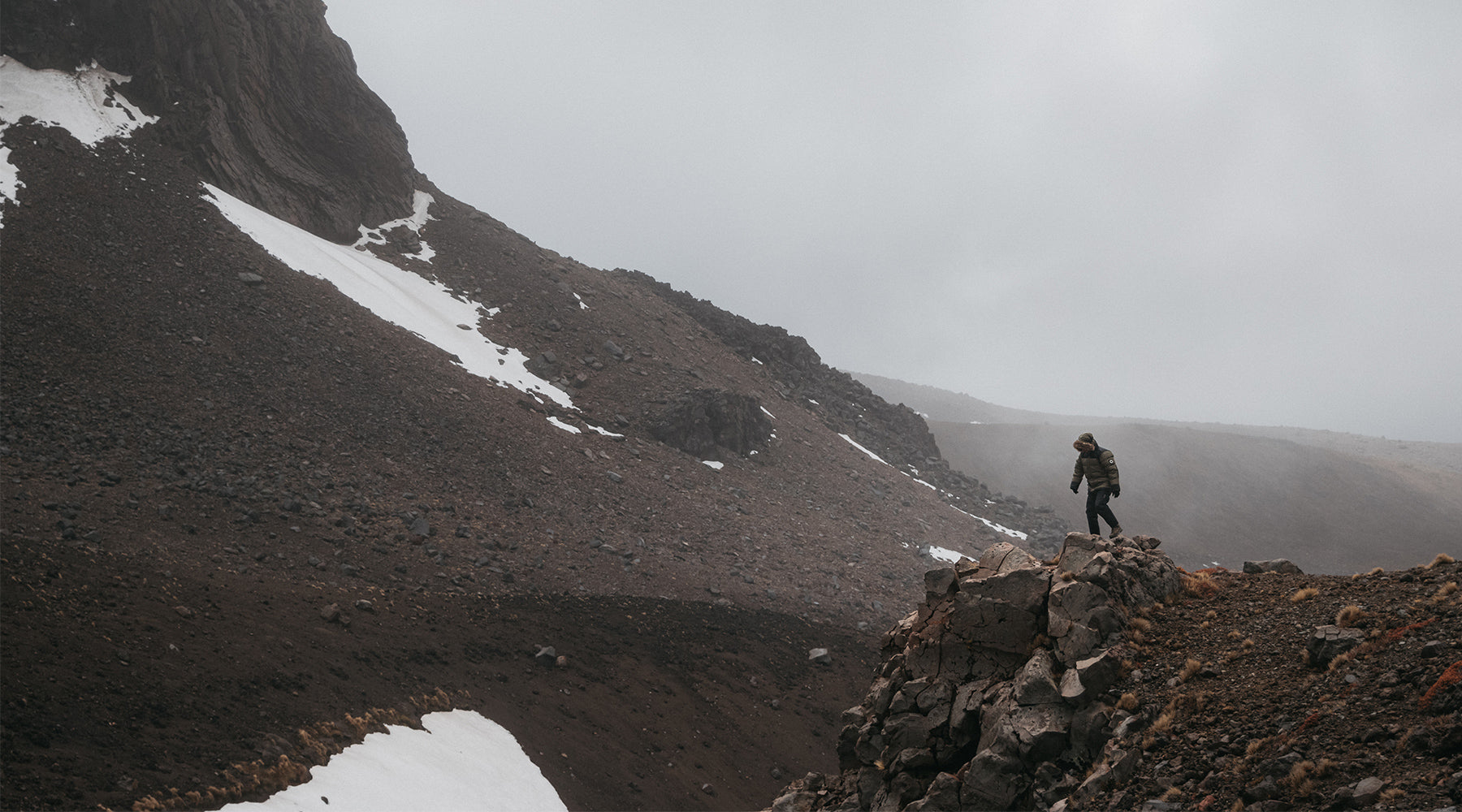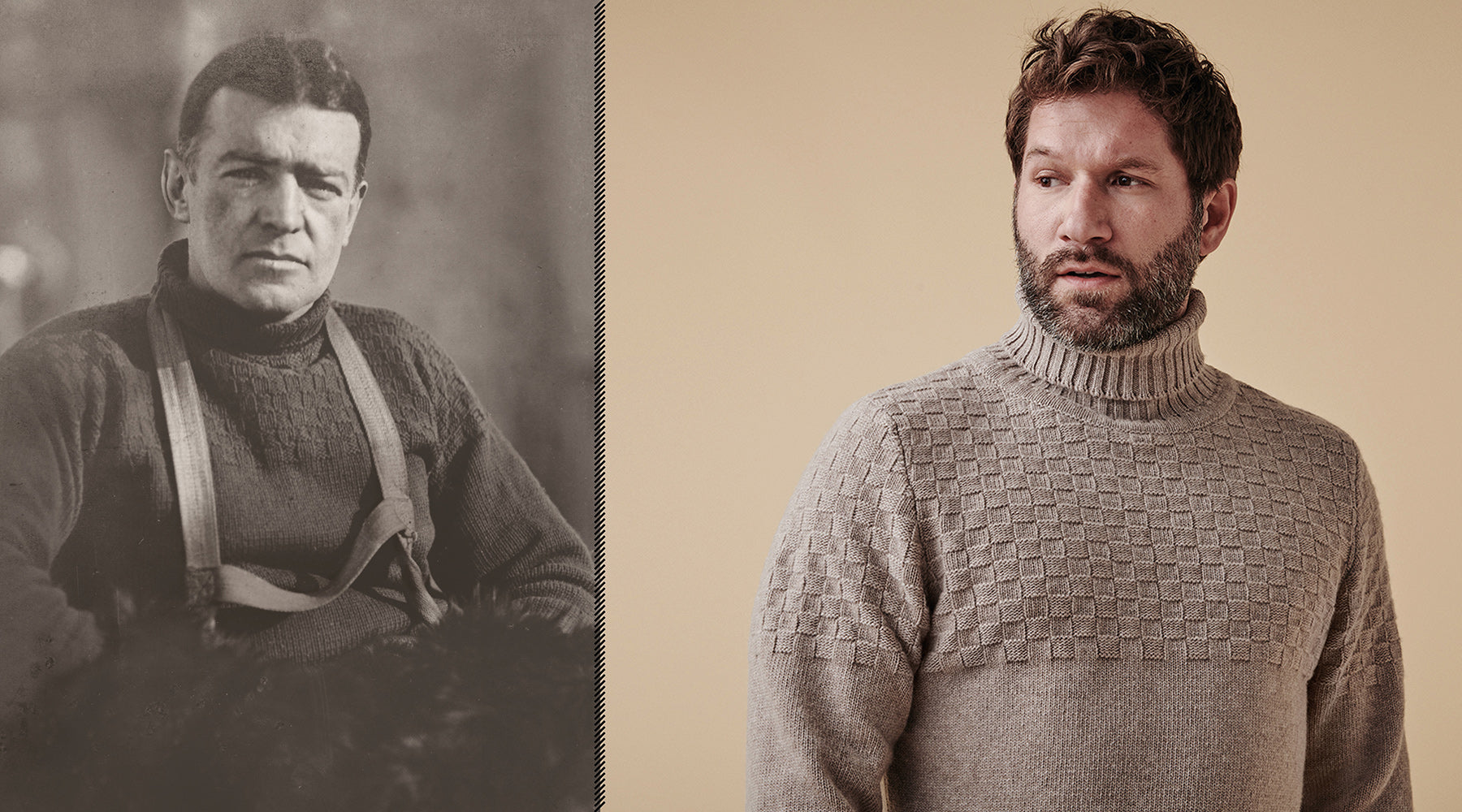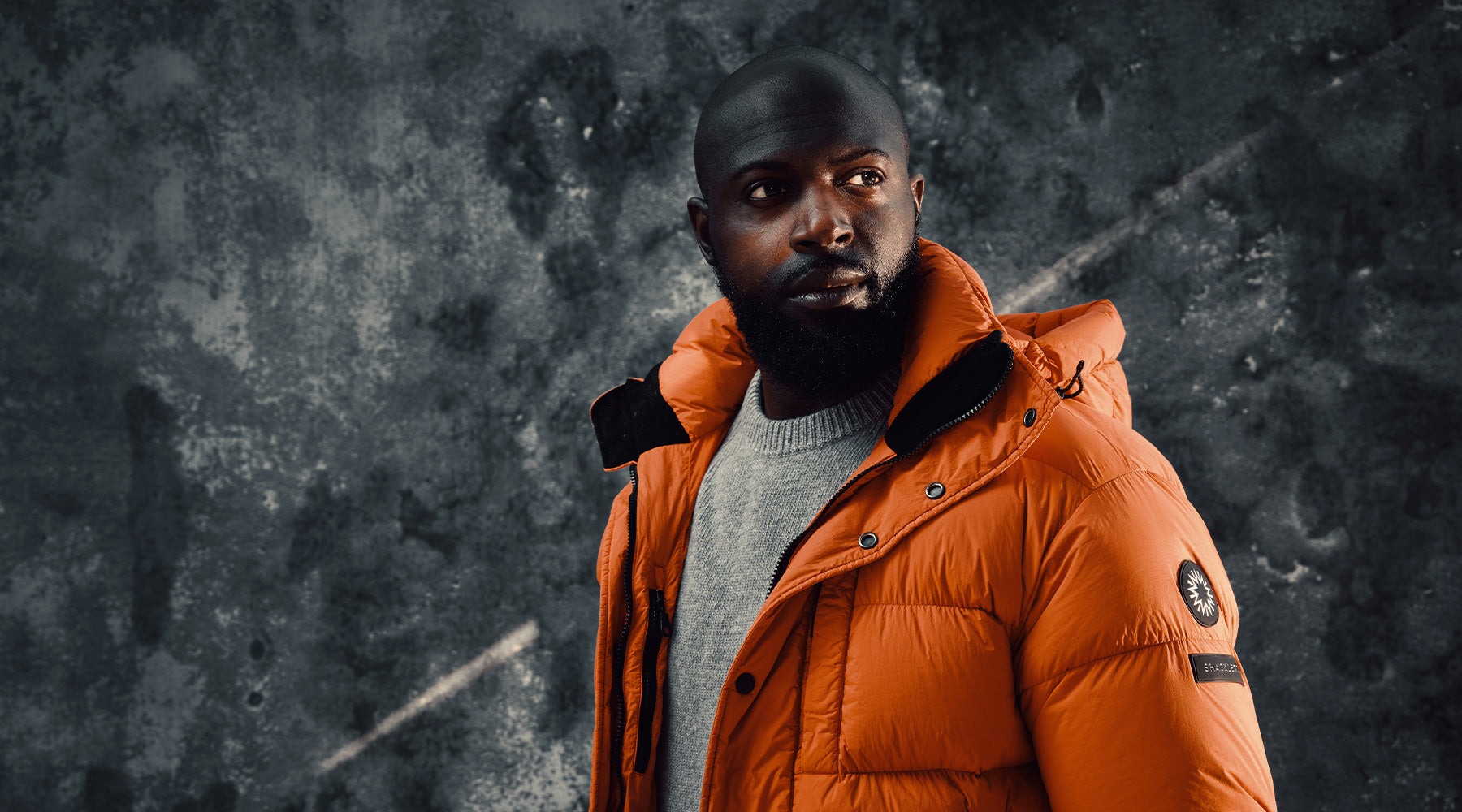
How do explorers deal with isolation?
Words of wisdom from adventurers, endurance athletes and polar explorers who have removed themselves from civilisation for long periods of time and put their minds and bodies through gruelling experiences.
We currently all face uncertainty. And while exploration is self-imposed and meticulously planned, there are parallels that can be drawn between this uncertainty and exploring the lesser-known regions of the planet: the apprehension of entering the unknown; the feeling of isolation; the mental challenge of a more stripped-back existence; and how best to react to the situation to not only minimise stress and pain but take positives from the experience.
To better understand the mindset of coping in challenging environments, we speak to adventurers, endurance athletes and polar explorers who have taken themselves away from civilisation for extended periods of time and put their minds and bodies through gruelling experiences. In this segment, we ask:
How do you deal with isolation in extreme environments?
Matt Pycroft, Expedition Filmmaker
'Isolation' is often a mindset. Yes, there are scenarios where we are physically deprived of the company of others, but we get to choose how we mentally face these situations. It is pointless to dwell on factors outside of our control, and it is very rare that we are in a situation that we cannot improve, even by just 5%. I try my best, regardless of what I am facing, to lift my chin up and make my situation better. Sometimes that can be as simple as making a cup of tea.
Separately, some of the most profound moments of my life have been spent entirely alone, and there is great power in self-reflection, and learning to enjoy your own company. As a society we are losing our tolerance for silence. Remove the sensory triggers (phones, books, music) and really spend time getting to know yourself. It's amazing where our minds wander when they're given the freedom to do so.
Hannah McKeand, Record-Breaking Polar Explorer
I enjoy isolation. I treat the time I spend isolated in extreme environments as a privilege, an opportunity to be in tune with both nature and myself. Modern expeditions, if not professional, science-based ventures, are an indulgence and those of us lucky enough to have undertaken them should be very grateful for our lot in life.
Ross & Hugo Turner, Adventurers
It’s a very strange thing isolation. We usually find that the first one or two weeks of an expedition are the hardest because you’ve left behind the comforts and memories of home for a harder, less comfortable situation. These emotions and feelings eventually leave you. You’re now in full expedition mode, which is an amazing experience. The hardest thing is then to leave the expedition’s isolation and get back into normal life.
To paraphrase Red (Morgan Freeman's character in The Shawshank Redemption): “You first hate the prison walls, then you get used to them, then you can’t live without them.” The isolation of an expedition is a feeling that most people don’t get to experience, and if you do, a lot of people don’t return to another trip because it’s a very hard feeling and emotion to burden yourself with. In short, you just have to get used to the raw emotions at the start by keeping your eyes up and looking at the amazing world in front on you and how lucky you are to be there.
Ian Holdcroft, Shackleton Co-Founder & Endurance Athlete
Routine and structure are important (true in any situation but especially so in isolation); it helps one focus on process and the present, rather than outcomes and time. It channels energy into making positive progress and limits worrying about uncontrollable factors.
It is important to normalise as many things as possible and become comfortable with the environment and situation. Having and sticking to a routine is one way to quickly establish a 'new normal' so you feel comfortable. Depending on the circumstances (and resources), it’s critical to create definition between moments: night and day; work and rest; effort and reward.
I also believe being comfortable with 'talking' to yourself (not necessarily out loud) is a good way to cope in a challenging situation. Ask yourself how you are? How are you feeling? Are you sticking to your plan? If not, why not? What's working well, what's not? Can I change anything? Is there anything I need to do to make the situation better?
Sean Conway, Endurance Athlete
I actually quite like the isolation – I thrive on it. However, I tend to break down my day and progress into the five pistons of endurance: food, water, sleep, muscle management and mindset. I focus on trying to get the optimum out of those and that keeps my mind busy.
Louis Rudd MBE, Polar Explorer & Former SAS Soldier
For me it’s about appreciating the environment and the opportunity. I continually remind myself how fortunate I am to be in this incredible place and how so many people would love this opportunity but may never get it. We spend most of our lives surrounded by people so to actually spend a bit of time isolated is quite a refreshing change. Focus on the positives and embrace the experience.
Having a strong support base at home is critical – if you know there are people back there willing you on to succeed it’s a huge motivator to keep going. It gives your suffering greater purpose as you don’t want to let people down.
Martin Hartley, Expedition Photographer
If you don’t want to be isolated, cut off (by choice) from the long arm of rescue and the phycological comfort of a quick get out, then you have made a wrong choice to be so exposed. I love the feeling of being independent of a quick rescue – it changes your brain and life appears before your eyes and ears and nose and touch. The sense of feeling mortal is a healthy fear to possess, and one which should promote good decision making.
For me the best way to deal with the isolation is to accept where I am fully and embrace the location and use what I have around me, treat everything with caution and not assume anything. Boredom should never be an option, there are always things to do, and routine is key.
Scott Sears, Polar Explorer
I personally find focusing on doing the little things right, consistently, keeps my mind away from becoming occupied with the fact you are isolated. Working through the tasks in front of you towards a bigger goal.
George Bullard, Explorer & Endurance Athlete
In 2007, at the age of 19, I spent a very long time walking a very long way. It was 52 marathons back to back in the harsh cold of the Arctic. It took 113 days to complete and involved isolation in one of the most extreme environments. Since then, I have done heaps more expeditions, including kayaking across the North Atlantic Ocean, where isolation has been a major factor.
The real art is to be present. Don't be scared of the future or regretful of the past, just live in the moment. You have food, water and warmth and that is everything you need to survive… for now!
Control what you can control and try to ignore the white noise. The noise is just noise and will only distract you and cloud your mind with negative thoughts. Take pleasure in the smallest things. Laugh about the silliest things and reignite your childhood curiosity. Lower your self-imposed expectations. Don’t berate yourself for not achieving a million things on your to-do list – instead, give yourself a more measured target.
Be grateful for everything you do have currently. Take time to be silent, sit, stare and think about nothing – it is actually quite nice!
James Aiken, Solo Sailor
Confidence in yourself is founded on thorough preparation, where you envisage and plan for all the possible disasters that could befall an expedition. This preparation is especially important in your own physical fitness and that of the equipment you will rely on once far from help. Creating the scenario where you can truly push yourself in remote areas starts long before the journey itself.
Extreme environments are often the most beautiful, and taking the time to immerse in the natural wonders fuels a sense of contentment – this can be hard to do when exhausted but I have always focused on creating times, even a moment or two, where I allow myself to absorb the experience.
Levison Wood, Explorer
I like to remember why I am there, my purpose and end goal. Even when I am isolated and perhaps feeling alone, I remind myself about how fortunate I am to be in a certain part of the world, going on an adventure. Otherwise I try and think that it won’t be long before I’ll be meeting someone new and interesting on my path.
Guy Buckingham, Mountaineer
Being with the right people is foremost; people with whom you feel comfortable sharing your thoughts and feelings provides an enormous comfort. Journaling is also very useful for me. The ability to write about my thoughts and feelings gives me an opportunity to vent onto the paper, plus there is the added advantage that it makes up for my very poor memory and allows me to re-visit my expeds when I get home. And lastly, having some small memento from home and the people you love, a small photo, piece of writing, trinket or even hip flask, it helps to keep me grounded and connected.
Mark Hannaford, World Extreme Medicine Founder
For me, social interaction is highly important, so isolation is challenging whether it's during the present lockdown or on an expedition. I tend to deal with isolation better on expedition than I do in a domestic setting, but either way focusing on tasks that I can control is helpful.
Clarity of vision and clear goals alleviate the feeling of isolation on expeditions. Bringing these skills back home, to my mind, make genuine expedition folk more capable of dealing with isolation in everyday life. However, this doesn't all help with the feelings of frustration that a lack of adventure brings!
Wendy Searle, Polar Explorer
When I'm in an extreme environment, or one where there are high risks, I'm often very focused, so I don't have much time to think about being lonely. I'm addicted to the isolation though – the complete focus on the task in hand and no distractions of everyday life to worry about. The line between being alive and making a critical mistake is often a thin one, but that's part of the appeal.
Ian Finch, Former Royal Marine Commando & Expedition Guide
Focusing on the ultimate ‘why’ of your scenario is key. If the ‘why’ is strong enough, even extreme isolation won’t take you away from the task at hand. Isolation, I believe, especially in wild and remote places, can be looked at as a positive experience. You're immersed into the temperament of the landscape, you slow down as a human, and when you slow down you’ll look more – when you look more you learn more. I think that’s something we could all benefit from.
Also, I tend to use the ‘100m rule’. Imagine each 100m of a marathon is a day in the life of your expedition, never look too far beyond that day unless you really have to for specific reasons. Looking too far can be overwhelming. Focus on what you can do to make the best of that 100m, that day, within your own boundary system. Try and be proactive at the start of the day to create momentum, develop a simple achievable routine and maintain some form of discipline within that routine. Also, don’t be too hard on yourself, if you slip you slip. What’s important is how you step back into the routine and maintain some form of forward motion.


